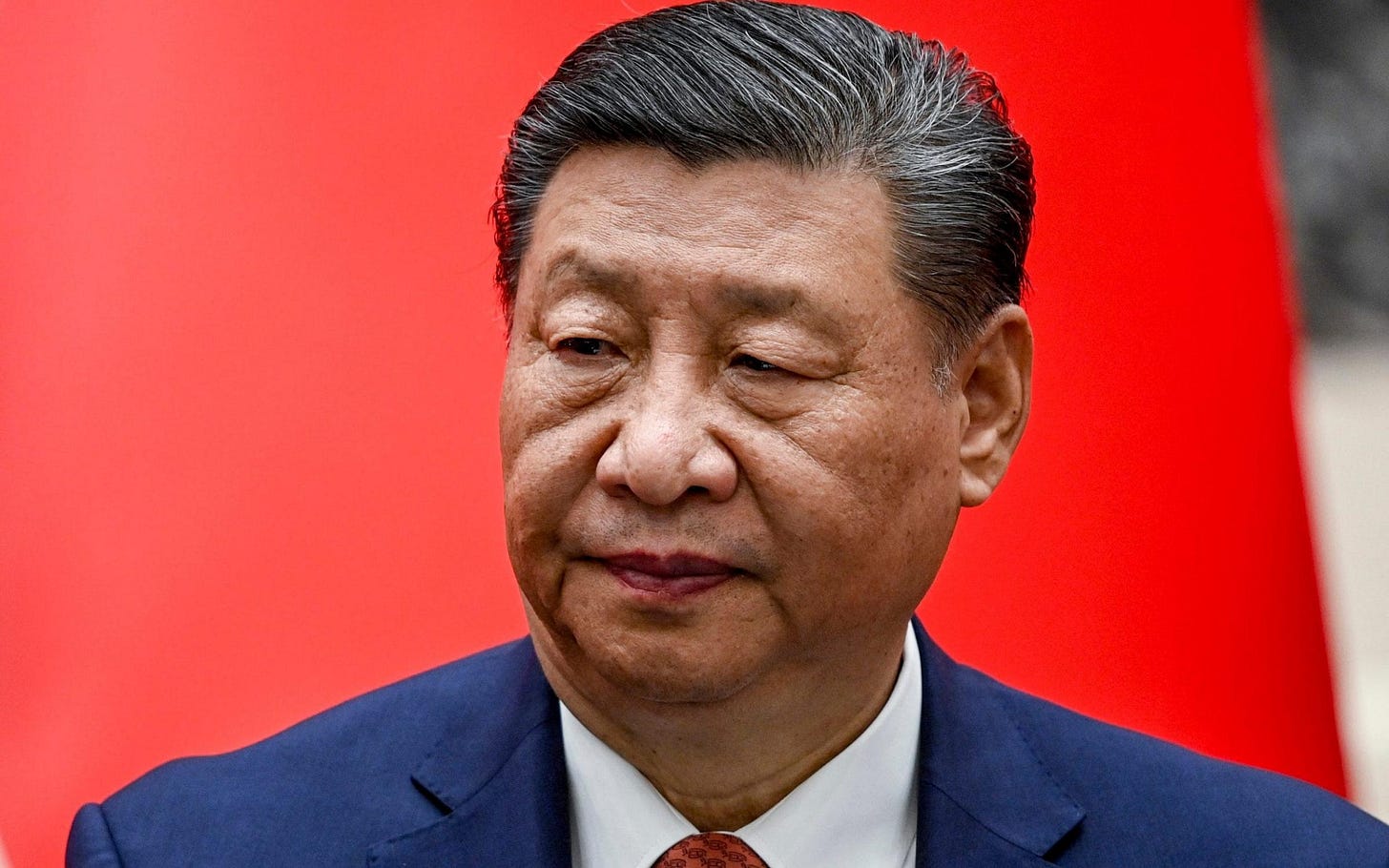
China 2024 and Beyond: A Troubled Future
My recent discussions on Liberty Itch have painted a picture of China’s landscape as a prison-like surveillance-intensive system, and as a no-privacy technology-driven cashless society.
In this article, I want to further explore the future of China as we look towards 2024 and beyond. I will examine the implications of China’s expanding surveillance state, the tightening grip of authoritarian power, the simmering economic challenges, and the looming demographic crisis.
A Safe Prison
In China, particularly within its major cities where surveillance cameras are omnipresent, the situation resembles a vast yet secure prison. Proponents may argue that it ensures unparalleled safety, but high security is also a characteristic of prisons, largely due to extensive surveillance, with only a few exceptions like Jeffrey Epstein.
Beyond what I discussed in my previous article, emerging technologies are being used by the government to further erode any remaining privacy. A recent example I heard from a friend is a discreet device, easily overlooked, capable of extracting comprehensive information from your phone within a short range. Although not widely deployed yet, the potential of such technology is horrifying. While the most secure phone option in China is an overseas iPhone, these have been banned by all government bodies and affiliated organisations – a decision aimed at facilitating surveillance under the guise of patriotism.
The youth unemployment rate in China reached new highs each month in 2023
A Loyal Empire
Xi Jinping’s regime is imposing a concentration of power unprecedented since Mao’s era. This communist empire demands not just loyalty, but absolute allegiance from its members. Figures like the recently deceased former Premier Li Keqiang, known for their more liberal stances on society and the economy, have been conspicuously absent from the new cabinet for a year.
With the aid of AI and new technology, examining loyalty to the supreme leader has become easier. In various government bodies and affiliated institutions, such as banks and universities, advanced AI-embedded cameras are being employed to analyse people’s facial reactions. These sophisticated systems scrutinise subtle changes in lips, noses, chins, eyes, and eyebrows to infer individuals’ emotions – admiration, confusion, indifference, or even dissent. The leap from mere “facial recognition” to “mind reading” is deeply troubling.
A Growth Mirage
China’s economy is facing severe challenges. Despite optimistic forecasts for a robust recovery following China’s post-COVID reopening at the end of 2022, the reality in 2023 has been starkly different.
Stock Market: In contrast to the significant gains in global share markets in 2023, with the US up by 24.2%, the Eurozone by 15.7%, and Australia by 7.8%, China’s stock market has seen a decline, down by 11.4%.
Property Market: The real estate sector, once a cornerstone of China’s economic growth, has seen a decline of 20-30% across most major cities. In cities like Shanghai, luxury properties have seen even steeper declines of 30-40%. This downturn is more pronounced in smaller cities experiencing a net population outflow. Additionally, a report in August 2023 indicated that the vacancy rate in 28 major cities was at 12%. (For comparison, Australia’s vacancy rate was recorded at 1.02% in October 2023.)
Local Government Debts: Local governments need to repay a record US$651 billion in bonds in 2024. The deep property slump is reducing their ability to generate income from land sales, which is a crucial revenue source. The slowdown in the broader economy has also affected their tax revenue. Growing concerns about potential defaults could trigger a widespread economic crisis.
Spending: Although people are still showing off with travelling photos on popular Chinese social media platforms, overall spending has reduced significantly, leading to the phenomenon termed “selfie travel.” A friend, whose business has suffered a significant downturn, satirically remarked, “I used to shop at Hermes, but now I shop at Uniqlo.”
With the aid of AI and new technology,
examining loyalty to the supreme leader has become easier.
Youth Unemployment: The youth unemployment rate in China reached new highs each month in 2023, leading to the government’s decision to cease publishing the data. The last official youth unemployment rate was over 20%. This trend is attributed to a slowing economy and a mismatch between graduates’ skills and job market demands, as well as their expectations and “lying flat” attitudes, which pose serious implications for social and political unrest.
Baby Boom Bust
China’s future is increasingly influenced by a significant demographic issue: its declining birth rate. In early 2023, China experienced its first decline in birth rates in 60 years, a trend that only intensified as the year progressed. Despite policy shifts from the One-Child to the Two-Child and later the Three-Child policies, young families remain reluctant to have more children. This trend, along with minimal population growth, threatens to strain social security systems, potentially leading to a critical tipping point.
Conclusion
While numerous factors, such as potential war with Taiwan and evolving political and economic relations with Western countries, play a role in shaping China’s future, the areas discussed here are particularly significant. The increasing reliance on surveillance, a heightened emphasis on ideological conformity, and a declining population, point towards significant difficulties ahead. Though Xi Jinping, persistently criticised for lacking the capability to advance China’s progress, remains the unchallenged supreme leader, China is in urgent need of a new Deng Xiaoping—a true reformist—to take the country back onto the right track.







